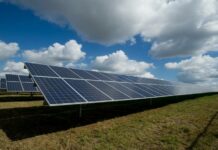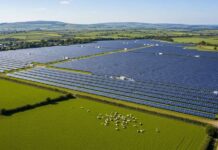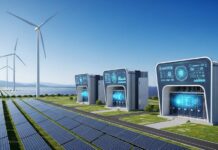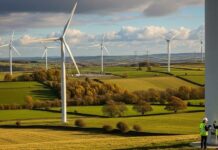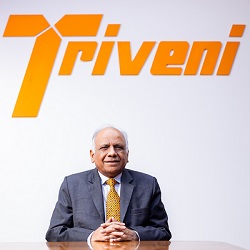In response to growing global concerns about climate change and greenhouse gas emissions, industries are increasingly adopting sustainable practices. The power generation industry, in particular, has recently undergone significant global transformations, shifting from conventional to renewable energy sources. This shift is driven by the fact that fossil fuels account for over 75% of global greenhouse gas emissions and around 90% of all carbon dioxide emissions. It is widely anticipated that industries will soon accelerate their adoption of eco-friendly “Green Energy” solutions. Triveni Turbines is at the forefront of this initiative. With more than five decades of experience in the industrial steam turbine industry, Triveni Turbines is committed to minimizing the carbon and heat footprint of manufacturing operations.
According to the ‘Third Biennial Update Report to the United Nations Framework Convention on Climate Change’, manufacturing is one of the top contributors to global Greenhouse Gases (GHG) emissions, contributing close to 225 million tons of CO2. In India, coal-fired power plants are responsible for 70% of the total power demand. This poses a significant challenge due to depleting natural resources and increasing energy needs. Recognizing the critical need for sustainable energy solutions in the manufacturing industry in the early stage, Triveni Turbines has developed technologies that address environmental concerns while also enhancing operational performance.
Initiatives
Waste Heat Recovery Systems
Power Generation with Renewable Resources
In 2020, the global domestic biomass supply reached 57.5 exajoules (EJ). Solid biomass constituted the majority at 86%, with Asia contributing 40% of the global supply. Municipal and industrial waste made up 6% of the biomass supply, with Europe providing nearly half of this amount. Triveni Turbines is taking the lead in integrating captive power generation systems with renewable sources of energy. These systems have been designed based on biomass, waste heat, and other non-depleting resources so that industries can generate their own electricity sustainably. It also mitigates GHG emissions leading to reduced dependency, as most grid powers are generated through burning fossil fuels..
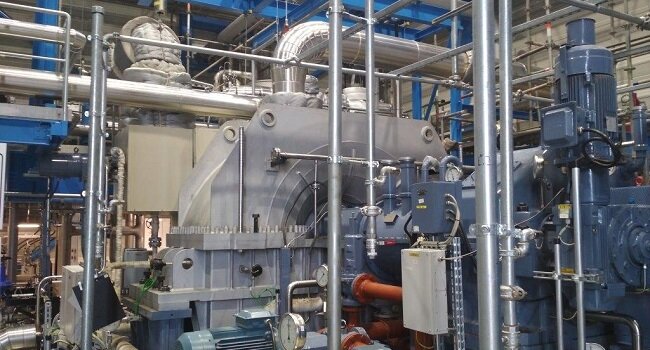
One such initiative of Triveni Turbines’ is the development of waste heat recovery (WHR) systems. This uses the residual heat generated from the industrial process that would be wasted otherwise, to produce clean energy. By converting waste heat into useful power, Triveni Turbines help industries lower their carbon output by reducing reliance on fossil fuels. This initiative not only enhances energy efficiency but also brings tremendous savings for businesses.
Implementation
Waste Heat Recovery based Power Plant System installed in a Steel plant in Poland (Europe)
Triveni Turbines collaborated with a steel plant company, one of the leading producers of blast furnaces and industrial-heating coke in Poland.The end-customer needed a solution for utilizing waste heat from the manufacturing process. Triveni Turbines developed and installed a 30 MW extraction condensing steam turbine generator (STG), operating at an inlet temperature of 490°C and an inlet steam pressure of 65 bar. This Waste Heat Recovery (WHR) system was tailored to meet the company’s evolving power and steam supply demands in accordance with European standards and the Polish Grid Code requirements. This innovation significantly reduced the company’s carbon footprint, enhanced energy efficiency, and boosted profit margins.
Biomass-based Power Plant Sytem installed in Turkey
Triveni Turbines supplied a 16 MW condensing steam turbine generator (STG) for a biomass-based power plant in Turkey. The biomass fuels, including forest waste, paddy waste, canola stalks, sunflower stalks, and sweet corn stalks, were not consistently available. To address this, Triveni redesigned the turbine internals and controls to perform optimally even under fluctuating load conditions. Despite the diverse fuel sources, the STGs operated efficiently and required minimal maintenance. This project demonstrated Triveni Turbines’ ability to adapt to challenging conditions while significantly reducing greenhouse gas emissions. Notably, the STG was delivered in a record seven months, and commissioning was completed within 35 days, even during the pandemic.
Waste to Energy based power plant system installed in Germany
Triveni Turbines played a crucial role in a waste-to-energy project utilizing refuse-derived fuel (RDF) at a leading Paper manufacturer in Germany. The RDF power plant, powered by Triveni’s 15.6 MWe condensing steam turbine generator (STG), operates with an inlet steam pressure of 27 Bar and an inlet temperature of 320°C.
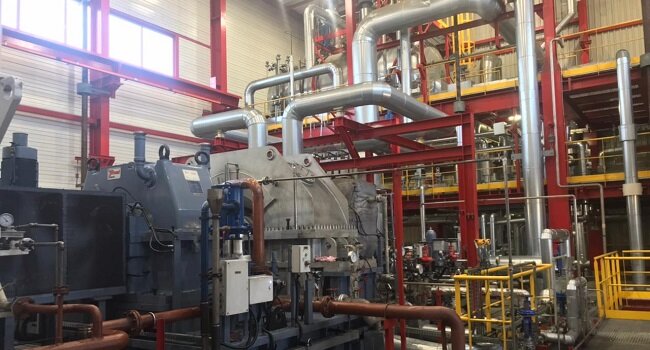
The paper production process requires significant amounts of thermal and electrical energy, leading the client to invest in an RDF power plant to efficiently meet these demands. Triveni Turbines provided the steam turbine generator unit and associated equipment, which processes 300,000 tonnes of waste annually to generate energy for the paper plant and neighboring communities. This project greatly enhances sustainability by incinerating waste in an environmentally friendly way, supplying a substantial portion of the paper mill’s steam needs. Additionally, excess heat from the paper drying process is used to warm the outdoor swimming pool, demonstrating a comprehensive approach to energy efficiency and resource utilization. The RDF power plant achieves remarkable annual savings of 32 million cubic meters of natural gas and primary energy, reducing CO2 emissions by 55,000 tonnes each year. This case study exemplifies the environmental benefits of a sustainable energy initiative.
There is an urgent need to transition from conventional fossil fuels to renewable, carbon-neutral options. Biomass-derived fuels play a vital role as they offer recent carbon emissions while emitting fewer particulates, sulfur dioxide, and air pollutants than fossil fuels.
Efficiency Improvement Programs
In addition, the company refurbishes existing turbine systems using its refurbishing arm, Triveni REFURB. Through this initiative, several aftermarket solutions are available for different types of rotating equipment including steam turbines and compressors. By upgrading turbine internals like rotors, stators, bearings and adopting advanced steam flow path designs, Triveni Turbines ensures that older turbines operate at their peak efficiency. These upgrades lead to significant reductions in GHG emissions and operational costs, further improving the overall sustainability of industrial operations.
The Impact
According to the 19th Electric Power Survey conducted by the CEA, the all-India installed power generation capacity is projected to grow to 619 GW by the end of FY27. Similarly, the International Energy Agency (IEA) estimates indicate that India will add between 600 GW to 1,200 GW of additional new power generation capacity before 2050. In a scenario like that, the efforts of Triveni Turbines have led to remarkable achievements in reducing GHG emissions and promoting sustainable manufacturing practices.
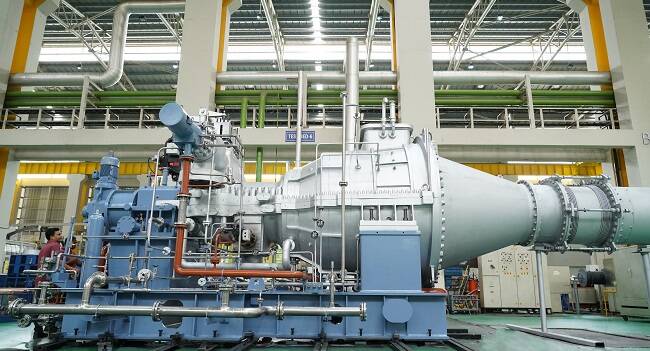
Over the years, Triveni Turbines has been working towards bringing cost-effective and sustainable solutions across manufacturing industries vis-à-vis carbon-heavy industry to reduce its carbon footprint.Their commitment to sustainability and innovation is evident-through their pioneering technologies and collaborative partnerships. Triveni Turbines continues its leadership position in offering customer steam turbine solutions to drive positive environmental impact that enables industries to embrace sustainable practices and contribute towards a greener future.
Author: Mr. Arun Mote
 Mr. Arun Mote
Mr. Arun Mote
Executive Director at Triveni Turbines



